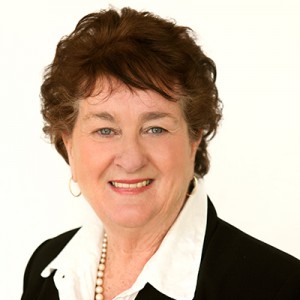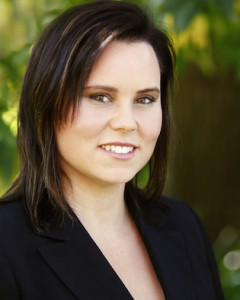Connect September 2015
Financial news for tomorrow’s lifestyle
EDITORIAL
We have experienced considerable volatility in recent weeks. We have been given a cocktail of reasons for this volatility. First it was the Greek economy, or was it China? No maybe it was the Federal Reserve talking of raising interest rates.
Why raising interest rates in the US would give the markets some concern it begs reason. They couldn’t get much lower. Then back home just when the Reserve Bank of Australia was saying it may not have to lower rates or ease policy any further, the world markets get nasty.
Well it looks now that the US won’t raise rates in the face of global markets spitting a dummy, and the Australian Federal Reserve will hold steady until at least the middle of next year. Well we can always print money if we run out. Then of course there are numerous gurus out there predicting this or that. Let’s face it, there is a lack of consumer confidence and this reflects onto the Australian and world markets.
We are still a wealthy country and there are some great opportunities out there. As Tony Abbott said “I think living in Australia is like winning the Lotto”. Yes we might have had some volatility on the markets for a period but as we saw after the GFC, the markets went up. In fact the DOW in the US is still above where it was before the GFC in 2007/08.
The worst thing to do when we have a correction is to panic. If you are in the pension phase of life, you may need to curtail your spending for a while. Perhaps put off that overseas trip.
Remember we are here to help you through periods of correction as well as the good times on the market. Our portfolios have been giving good returns but will be impacted when markets have corrections. If you have any concerns or need reassurance, please contact your Osborne Yuille adviser on 1300 727 082.
By John Osborne, Chief Executive Officer/Adviser
DEVELOPING A COMPANY STRUCTURE
Why use a company structure? A company structure allows you keep your business entirely separate from personal affairs and finances. It gives you some form of protection if things go wrong. Creditors can sue your company, but generally can’t access your personal assets such as your home. From a taxation perspective, a company structure can be tax friendly for small business, as company profits are taxed at a flat 30% rather than marginal tax rates of as much as 45% which can apply to individual personal tax rates. It also offers greater opportunities for raising and increasing capital for the business. There is also more flexibility for shareholders. If a shareholder wants out of the business it’s a matter of transferring their share to other shareholders. It also offers a more professional image having a company than being a sole trader or partnership.
So what is a company? A company is a separate legal entity that can buy and sell assets. Most small to medium companies will be proprietary limited companies where ownership is limited to between one and 50 non-employee shareholders. Shares cannot be sold to the public. The business can operate with one or more directors. Usually the owners of the business are directors.
What are the negatives and pitfalls of a company? Making sure your company meets the requirements of the Corporations Act is important. As Directors, you will need to maintain current financial records and maintain cashflow to meet debts. If as a director you continue to trade knowing your company can’t meet debts you can face stiff legal action and penalties including jail time. You will need to keep a set of books for your finances and tax returns. You will need to complete an annual company review for the corporate watchdog, the Australian Securities and Investments Commission (ASIC). Of course this will entail more forms and red tape to be completed. Seek help from your accountant, and yes of course there are lodgement and annual accounting fees, depending on your business audit costs. It is very important to realise that you need to keep personal and business costs separate. The money in the company belongs to the company. The only way to get the money out of the company is through wages, salaries or a business loan, which will most likely incur fringe benefits tax and will need to be documented.
Setting up your Company Seek advice from your accountant. You will benefit from the advice and direction from an experienced professional. The cost of setting up a company will be about $1,500 plus GST. It pays to seek some ongoing coaching in those early days of running your business.
Keeping your start up business healthy How healthy is your business? You, as an entrepreneur, need to ask yourself these questions: Is your business meeting its targets? Are there cash flow problems in your business? Are marketing and sales plans working? Are current economic times impacting on your business and what actions do you need to take to meet these changes? What, if any, are plans for expansion? Do you have a retention problem with staff? Are you able to stay motivated? Should you be seeking coaching in your business? What challenges are you facing in business? Are there things holding you back? It is important to regularly do this type of analysis and assess how you and your business is performing.
Online Accounting for small to medium businesses Xero is an online business accounting software especially designed to simplify your finances and make what can be a complicated process easy, helping to you save time so you can get on with growing your business. Your Osborne Yuille Accountant can prepare your accounts quickly and identify any issues or tax planning needs.
Some of the benefits of using Xero are:
- Online invoicing – you get paid faster
- Connects to you bank account – allowing you to get your bank statements imported automatically
- Mobile app – manage your business while you’re on the move
- Fast financial reporting – view and share interactive reports and budgets in real time with a single click
- Enter and record bills quickly – manage your cashflow by scheduling payments
For a free trial call Irene on 02 9970 3111 or email tax@oya.com.au.
By Irene Ohannessian, Managing Accountant
THE SECRET OF A SUCCESSFUL BUSINESS
Change before you need to change
You need to continually watch the horizon for changes that are occurring in your workplace or business. Just like a ship’s captain who is continually watching the horizon and being prepared to change course.
So we in our careers, work places and business need to be watching for changes and be prepared to change course.
We live in an ever changing world. Never before in history have we seen so many changes occurring in the business world that demands change from us. The person that will succeed in the business world will be the one with the skill to see changes and have the flexibility to adapt quickly.
Key business areas to look at:
- Are you offering the right product and services?
- How productive is your staff?
- Is your customer service offering right?
- Are you encouraging customer loyalty?
- Are you innovative as a business?
- Have we got our systems and processes right?
- Do you have a vision and business plan in place?
- Do you have a marketing plan?
Do you have a passion for your business?
Life is too short to live without a passion. We need to find our passion in life and business and then go for it. We need to have purpose. It is a lot easier to get up each morning when you have a purpose and passion for living for the business you are in. It’s this purpose that will set you apart from others and your competitors, both personally and in your business.
Is it time to clarify your vision for the future and your passion for being in the business you are in?
- What do you want to achieve in your life and your business?
- What do you need to do to make your business not only successful but significant? What would it look like?
- Where do you see your business in five years’ time? Do you have the right product and service offering?
- Is it time for change?
What business are you really in?
It’s important to really know and articulate the business you are in. You need to create the right service and experience for your customers.
Understand your customers’ needs and be ready to listen to them. Don’t presume you know their needs and situation and fit a ready made service offering or product to meet the needs you presume they have. Don’t be a product plugger selling to your customers without really knowing and understanding their needs.
Once you have defined, understood and really know the business you are in, now you are ready to grow your business. The following are some simple ways to grow your business.
Prospecting – Spend time prospecting and looking for more clients and customers. Also finding the right clients and customers that fit the business and service you are offering.
Work Smarter – Look at your systems and processes in your business to work smarter not harder. Systems and process to control and drive down the overheads in your business.
Build partners and strategic alliances that add value to your clients and customers
Business can be very lonely at times. Build strategic alliances with other service providers. You add value to your customers and clients when you have a professional network offering other services that are in line with your service offering.
The people in your business
Are your people focused and motivated? Do they have the same passion you have? You need to have the right people in your business to get the results you want. Staff who are willing to go the extra mile. Not staff who are coming to work on Monday looking forward to Friday and the weekend. You need staff who are focused and committed to giving good service.
Positioning your business
You need to create a unique point of difference that your customer and service offering will set you apart. Can your clients and customers differentiate between you and your competitors?
Find a mentor and coach in your business
Business can be very lonely at times. Having a mentor and coach you can talk to and pass around ideas with is a great help. Having somebody who can look at your business and service offering as an outsider is very helpful. Always be willing to seek advice.
By Claire Osborne, Chief Financial Officer
TEACH YOUR KIDS ABOUT MONEY

If you want your kids to stand on their own financially early in life, teach them about money early. Our belief systems are formed at an early age. Our kids’ money experiences and beliefs about money will be formed at an early age. Each generation has a different set of money experiences. The latest generation of kids are more grown up and savvy. They have grown up in an age of information and learning. They are immersed in an age of technology and information. They probably have their own laptop, iPhone and TV in their room.
Kids are in some way more grown up than previous generations. They are being fed new information on a daily basis. Kids 12 to 16 years are working in a part-time job and have their own money.
It’s an instant generation and generally don’t save unless they have parents who have taught them about money. Parents typically buy their children food and clothes, entertainment and expensive electronic devices. Sadly this generation doesn’t have much sense when it comes to money. Maybe some of their experiences about money have come from their parents. Consider the average adult reaching 65 years has under $200,000 in their superannuation.
Kids have huge aspirations and no plans in place to save or a budget to achieve their dreams. They need a reality check when it comes to money and saving. It’s never too late to start. Here are some tips to encourage young people to save and budget.
- Teach them about money early. Show them how to budget. Start by saving 10% of the money they earn or are given as pocket money.
- Pay your younger children for jobs around the home so they have money and learn about saving.
- You may give your teenagers $50 per week but expect them to pay for certain expenses such as clothes, birthday presents and entertainment.
- Teach them to budget their money and invest at an early age. It is so important that they learn to save and not spend all their money. Wealth creation comes from paying yourself first before you spend and pay others.
- Once they have saved a small nest egg, you can then teach them to invest. Buy some shares in companies and brands that they know and will relate to.
- Take an interest in your kids’ dreams and what they are saving for. Help them in drawing up a list of what they want to buy and the cost of the items.
- Teach them that money is valuable. How you can get into debt by borrowing on credit.
- If your kids have saved money over the year, you may add to their savings as a reward for saving.
- Finally, encourage your kids not to have debts and teach them the charges of credit and credit cards.
By Cameron Stuart, Managing Director/Adviser
Please take a few moments to view our Teaching your children about money video.
AGED CARE
LIVING LONGER- FUNDING AGED CARE
Living longer, living better legislation, which came into effect 1 July 2014 has introduced significant changes in aged care, especially when looking at accommodation bonds.
It is designed to make aged care funding more open and transparent. Aged care operators now need to publish their rates online which can be found at www.myagedcare.gov.au.
Accommodation bonds on average according to research by KPMG were $327,844 (May 2013) however according to the level of accommodation can go up to over $1m in private facilities. The annual requirement for aged care bonds has double over the last two to three years as the population ages.
So how do individuals fund this increase in bond payments? Many will immediately resort to selling the family home. This often is not the best option.
As of 1 July 2014 accommodation bonds will no longer be subject to the retention payment and are now referred to as Refundable Accommodation Deposits (RADs). The good thing about RADs is that if the resident moves out or passes away, the bond is returned to them or their estate, less a retention payment.
If you’re unable to pay the RAD in full, you now have the option of funding your aged care bond as a Daily Accommodation Payment (DAP). DAPs can enable an individual to fund the accommodation bond without selling the family home. They can also give the clients time to consider whether to sell or not to sell. It is a very emotional time, not only for the individual but also the supporting family members.
Aged care can be very complex and making the right decisions are critical. It is difficult enough to decide which is the most suitable accommodation but also the best way to fund the accommodation. Should you sell the family home to pay for the RAD and how are you going to meet the ongoing cash flow requirements?
By Lorena Millett, Aged Care Specialist/Adviser
ADVANTAGES OF RETAINING YOUR FAMILY HOME
The Accommodation Bond Loan in some instances enable an individual to fund the accommodation bond without selling the family home. This is usually a very emotional time for the individual and family members.
The Accommodation Bond Loan can avoid additional stress of selling the family home at an already stressful time for the individual and family members. Further the individual retains the option of returning home for periods of time. This can be helpful in the early periods of aged care.
Quite often an aged care applicant does not want to load the responsibility onto one child for the accommodation costs and aged care where they do not have other assets other than their home. They can borrow against the home even if it is for the first year or so. Further, the property could be let out to meet the aged care costs and the rental income may not be assessable for aged pension and aged care purposes in certain circumstances. It also avoids selling the family home in a down market for less than normal market value.
If the property is used for income to fund aged care costs, Capital Gains Tax (CGT) is disregarded for up to six years.
Our Aged Care Accredited team at Osborne Yuille will be happy to assist you through this. It can be a minefield so you will need qualified help. Please email info@oya.com.au or call 02 9970 3111 to speak with Lorena or Tim.
By Tim Cotton, Aged Care Specialist/Adviser
FINANCE CORNER
Now may be a good time to look at your mortgage. How about a variable rate of :
Or maybe you should consider fixing part of that loan. Remember if you fix the loan there could be penalties if you come out early.
Speak to one of our finance advisers for some professional advice on 1300 727 082.
NB: All loans are subject to approval by the relevant lending institution. Fees, charges and conditions may apply to each loan type. This will be disclosed to customers prior to applying for the loan. Rates shown are current and “indicative only” as of today but subject to change without notice.






